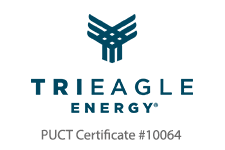An analysis of hydrogen’s energy requirements and hydrogen as a transporter

Hydrogen, the most bountiful component on earth is a strong clean energy transporter when utilized in a hydrogen fuel cell – profoundly proficient and adaptable, transmitting just power, intensity and water. In this review, we investigate the potential for a hydrogen-fueled future by checking out the condition of the hydrogen economy today-Galveston Energy Plans .
Hydrogen fuel cells produce power by joining hydrogen and oxygen molecules. The hydrogen responds with oxygen across an electrochemical cell like that of a battery to deliver power, water, and modest quantities of intensity.

Hydrogen is a manufactured energy transporter. It conveys energy produced by some other processes. Electrical energy is moved to hydrogen by the electrolysis of water. Yet, high-grade electrical energy is utilized not exclusively to deliver hydrogen, yet in addition to packing, melting, transporting, moving, or storing the medium. By and large, the electrical energy could be dispersed straightforwardly to the end client. For all fixed applications hydrogen contends with framework power. Moreover, fluid-manufactured hydrocarbons could likewise act as the overall energy transporter representing things to come.
Carbon from biomass or CO2 caught from vent gases could turn into the transporter for hydrogen iotas produced with electrical energy from sustainable or atomic sources. There are earth harmless options in contrast to hydrogen. Surely, the expense of hydrogen ought to be all around as low as could really be expected. However, the hydrogen economy can secure itself provided that it checks out enthusiastically. In any case, better arrangements will vanquish the market. Additionally, foundations exist for practically any engineered fluid hydrocarbon, while hydrogen requires an absolutely new dispersion network. The change to an unadulterated hydrogen economy will influence the whole energy supply and dissemination framework. Subsequently, all parts of a hydrogen economy ought to be examined before speculations are made.
Hydrogen as an Energy Transporter
Since hydrogen doesn’t exist openly in nature and is just created from different wellsprings of energy, it is known as an energy transporter. It is a perfect consuming fuel, and when joined with oxygen in a power device, hydrogen produces intensity and power with just water fume as a side-effect.
Hydrogen can be made straightforwardly from petroleum products or biomass, or it tends to be delivered by going power through the water, breaking the water into its constituent parts of hydrogen and oxygen. Some imagine a future “hydrogen economy,” where hydrogen is created from an assortment of fuel sources, put away for some time in the future, funneled to where it is required, and afterward changed over neatly into intensity and power.
Most hydrogen creation today is by steam-changing gaseous petrol. However, gaseous petrol is now a decent fuel and one that is quickly becoming more difficult to find and more costly. It is likewise a petroleum derivative, so the carbon dioxide delivered in the transformation cycle adds to the nursery impact. Hydrogen has extremely high energy for its weight, yet exceptionally low energy for its volume, so new innovation is expected to store and ship it. Also, power module innovation is still in the early turn of events, requiring upgrades in productivity and sturdiness.
